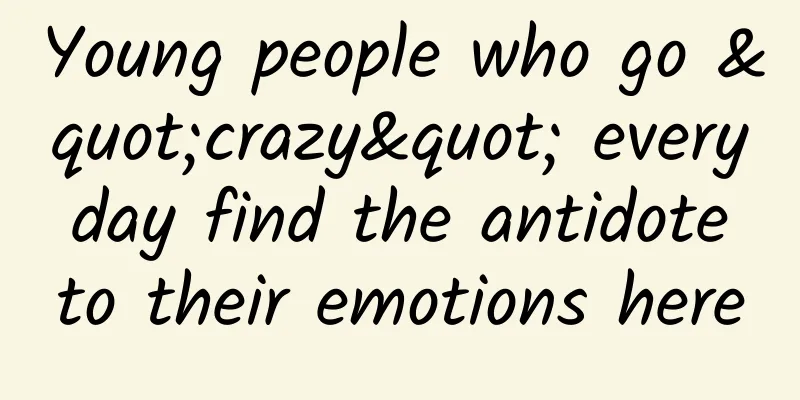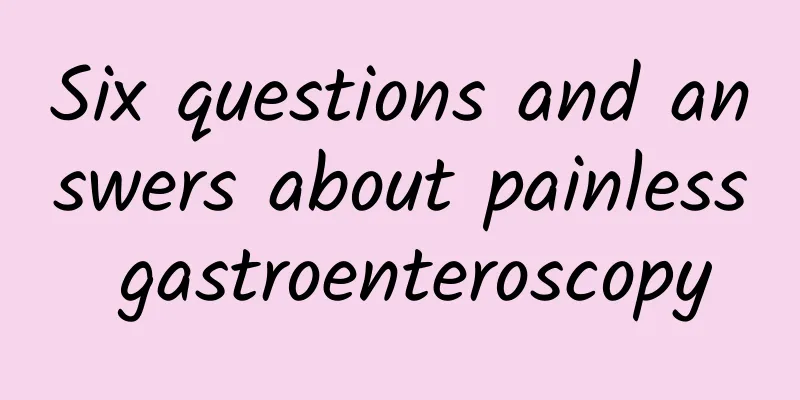Young people who go "crazy" every day find the antidote to their emotions here

|
The mental state of contemporary young people is characterized by "surprise". When we were still stuck in the days of young people "holding lotus flowers and knocking electronic wooden fish", who would have thought that "going crazy" has become a common phenomenon among young people. The abstract literature that was popular at the beginning of the year, also known as "Huanglongjiang Literature", mainly features "select or in yesorno" and random responses. The principle is a sonorous, incoherent, and full of professional jargon, as if someone accidentally fell asleep on the keyboard. When I was a kid, I would report my grades honestly or cry when my relatives pressed me. After being influenced by society, young people have learned to be "tough while hiding, and timid while being stubborn." At the family gathering table, he directly controlled the whole scene with "high-speed machinery". Whether it was urging marriage or childbearing, he could use "Huanglongjiang Yipai Full Bluetooth" to respond universally. He did not attack others nor did he consume himself, turning confrontation into reverse activities. Image source: A social platform After the holidays, many young people are back to work and have started new things. The "disgusting outfits" that are on the hot list are typical examples of how modern people carry the "crazy" spirit into every aspect of life: suits with pajamas, red autumn clothes with tattered sweaters, the main purpose is to make oneself comfortable and disgust others. Image source: A social platform I really want to ask: Why does a good person have to go crazy? In fact, the answer is very simple. Young people who seem to be "going crazy" are just looking for a way to release their emotions and solve problems, and to take the right to "define themselves" into their own hands. Why do young people do this? Since childhood, we have been taught to be emotionally stable. If we are wronged, we cannot cry or make a fuss, and it is best to be generous and tolerant of the person who hurt us. If we are sad, we cannot express negative emotions, but maintain a decent appearance and be a qualified adult. This behavior is defined as expression suppression in emotion regulation strategies: hiding one's true reactions, restraining oneself from releasing negative expressions, actions, and words, and ultimately covering up one's true emotional experience at the moment. In this behavior pattern, we tend to force ourselves to stop the emotional expression that is about to happen or has already happened. For example, when a conflict occurs, we repeatedly tell ourselves in our hearts, "Don't get angry. If you get angry and get sick, no one can help you." Or when being wronged, they force themselves to interpret the feeling of aggrieved in their hearts as “I’m not aggrieved at all, I don’t care at all.” Does this situation sound familiar to you? Yes, isn't it what we commonly call "holding on"? But holding on is not a good thing. 1. “Going crazy” is the antidote to modern people’s emotions A survey on emotional suppression levels and social interpersonal relationships found that a person who tends to suppress emotions will experience worse outcomes in social interactions, such as intimate relationships and romantic relationships, and will also have lower life satisfaction, self-esteem, and happiness. If emotions are suppressed for a long time, it may lead to serious emotional breakdown. Studies have shown that people who habitually suppress their emotions at work and in life are more likely to suffer emotional breakdown. "I just dropped the milk tea I just bought on the ground, but I suddenly broke down and cried." A small thing can become the critical point of emotional breakdown. Because the suppressed emotions do not actually disappear, but are constantly pressurized and expanded in our hearts, waiting for an opportunity to erupt. Just like boiling magma, it suddenly breaks through the weak crust and forms a volcanic eruption. Expression inhibition also affects people's cognition and reduces the level of memory for objective details, especially auditory and linguistic memory. This may be because when a conflict occurs, people use too many cognitive resources to tell themselves "I need to calm down", which makes people unable to remember other things. Moreover, this long-term repression is also related to negative psychological outcomes such as anxiety, depression, and suicidal tendencies. Long-term repression of negative emotions and stress can also bring potential risks to our health. The operation of many organs in the human body is affected by emotions. In addition to the familiar "endure ovarian cysts for a while, take a step back and breast hyperplasia", the gastrointestinal tract is also a major target area for emotions. The topic #胃是情感机构# once rushed to the top of Weibo hot search. (Click here to learn more → Bad mood? Maybe your stomach is asking for help!) Image source: A social platform Studies have shown that there is a close connection between the human gastrointestinal tract and the brain. When people's emotions change and they feel anxious, nervous, or uneasy, the neurons in the stomach become more sensitive, which in turn affects the secretion of gastric juice and gastrointestinal motility, and ultimately triggers a series of chain reactions such as loss of appetite and gastritis. If we are in a bad mood for a long time, we may also experience a series of somatic problems such as muscle pain, headache, insomnia, hair loss, etc., and may even become a risk factor for diseases such as stroke and cancer. The consequences of suppressing emotions that should be released are more serious than you think. 2. Reasonable "madness" can sometimes really solve problems In addition, reasonable "madness" may be more effective in solving problems than careful communication. Psychological research on the impact of interpersonal anger has found that anger can change other people's actual behavior, and this positive impact is particularly evident in some situations with coercive implications. In simple terms, instead of being a nice guy who appears to be emotionally stable, it is better to make good use of your anger and let it help you solve problems. For example, in the workplace, appropriately expressing your anger can actually help advance a project. When you are treated unfairly, being submissive and swallowing your anger won't help you, but going "mad" on the spot can get you a solution. As the saying goes, "It is better to waste others' energy than to waste your own energy." Young people's seemingly "crazy" behavior is actually an expression of anger to achieve goals that cannot be achieved through ordinary communication. "Going crazy" is a double-edged sword So, how can we release emotions and solve problems correctly? In life, the most common methods are cognitive reappraisal, mindfulness, meditation, etc., which tend to be flexible and self-consistent. If these methods can solve the problem, there is often no need to "go crazy". But if these methods fail to solve the problem, "madness" will naturally occur. "Going crazy" is a social strategy, but also a life strategy. "Going crazy" can be used to avoid ineffective social interactions. For example, when someone asks you questions, you can use "going crazy" literature to make the other person shut up in one second, saving unnecessary trouble. "Going crazy" is a great way to maintain emotional stability. Whether at work, in life or in intimate relationships, we need to use stable emotions to keep things running smoothly. But within the established and repetitive framework, going a little "crazy" and escaping from things we don't want to face for a short time can actually help us continue to pretend to be an "emotionally stable" adult. What's more, "going crazy" really makes people feel happy. In the process of "going crazy", our bodies will also release some hormones such as oxytocin and endorphins that make us feel happy, creating a real feeling of happiness. Therefore, the feeling of being crazy is not only brought about by the disappearance of psychological pressure, but also the pleasure of hormone secretion at the physiological level. However, we need to remind everyone that "going crazy" is good, but it is also a double-edged sword. First of all, the word "crazy" here is in quotation marks, which means exaggerated behavior with a certain degree of joking color, rather than ignoring public order and morality and spraying indiscriminately, let alone irresponsible nonsense. The boundary between them is not something that everyone can carefully grasp. Secondly, while solving problems, such extreme behavior patterns as "going crazy" may also bring new problems, such as others' negative perception and evaluation of you, or even the collapse of the entire social relationship. "Going crazy" is good, but it is better in moderation. "Going crazy" is like a drug that has excellent short-term effects, but also strong side effects. When a problem needs to be solved urgently, we can use "going crazy" to temporarily solve the problem, but in the long run, we still need to find a gentler and more lasting solution. In short, whether we use "going crazy" as an outlet for emotional catharsis or "going crazy" to solve problems, it actually means that we have long lacked an effective way to relieve emotions, or a model for reasonable expression and problem solving. Going crazy reasonably and facing up to your true spiritual and emotional demands behind "going crazy" are the keys to solving problems. Author: Science Popularization Team of Xinshi Science Popularization Studio Reviewer: Zhang Xin, Associate Professor, School of Psychology and Cognitive Science, Peking University |
<<: Should I take painkillers for knee osteoarthritis?
>>: One reason is enough to persuade you to eat more spring bamboo shoots!
Recommend
What is the method of lactation
The baby is born, but many mothers will fall into...
How many days of pregnancy is the most suitable for abortion
Abortion is becoming more and more common in toda...
What is the nursing method for thick yellow leucorrhea?
To cure a symptom, treatment alone is not enough,...
Pregnancy belly changes
The belly will continue to grow during pregnancy,...
You definitely don’t know these little-known facts about snoring!
Many girls have had this experience, where their ...
Pregnancy test paper picture
Generally, when we suspect that we are pregnant, ...
What to do if you don't have your period?
If a female friend has not had her period, it may...
Why is my vagina always leaking water these days?
In summer, if the private parts are not dry, it i...
How can Chinese medicine treat blocked fallopian tubes?
The combination of egg and sperm can give birth t...
Why is there always water flowing from a woman's vagina?
A woman's body will undergo a series of chang...
What are the symptoms of ovarian cysts? Abdominal distension and pain
Women must pay attention to the problem of ovaria...
Do I need to fast for 12 hours to take glucose tolerance?
After a woman becomes pregnant, she needs to go t...
What are those spots on the breast?
Small particles appear on the breasts, and this p...
Where is the best place for warm moxibustion for women?
Moxibustion is a common treatment method in tradi...









